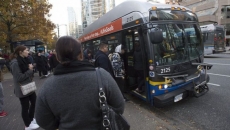In today's rapidly evolving digital landscape, the integration of technology in education is both inevitable and contentious. Recently, British Columbia made headlines with the announcement of an upcoming province-wide restriction on cellphone use in public schools, sparking a debate that echoes the concerns and perspectives of various stakeholders – parents, students, and teachers alike.

From a parental standpoint, opinions are divided. While some acknowledge the disruptive potential of cell phones in classrooms, others stress the importance of equipping students with the skills to navigate an increasingly tech-centric world. "I agree that having cell phones in class can be disruptive, but we live in a world where technology is ever-growing. It's important that our kids are able to keep up with the vast changes that come from using technology every day," shares Jenny Bassi, parent of children in Grades 3, 10, and 12.

On the flip side, some students offer a more resolute stance against cellphone use in classrooms. Grade 7 student Gurniyam Ladhar details, "Using a phone in class can be distracting for yourself and other students. Also, cyberbullying may become easier as students may find it easier to post about someone on platforms like TikTok or Snapchat, possibly even without their permission." Rightfully so, concerns about privacy and consent are raised, highlighting the potential pitfalls of unrestricted digital access.
From the perspective of educators, the implementation of a cellphone ban necessitates a nuanced approach. While recognizing the need to minimize distractions, teachers emphasize the importance of holistic digital literacy education. "If we are okay with students using cell phones, we should first teach students how to use cell phones. In any case, students must learn, on a fundamental level, how to be safe, respectful, and responsible when it comes to online presence", explains an elementary school teacher. As such, mere prohibition, without accompanying guidance, may prove insufficient in fostering responsible digital citizenship.

From the office of the Honourable Rachna Singh, the Minister of Education and Child Care, the Ministry communicates that it underscores its commitment to creating conducive learning environments while acknowledging the complexities inherent in regulating cellphone use. "The province wants to ensure students are focused on their learning with fewer distractions when in the classroom," asserts the Ministry. Collaboration with school districts and education partners is emphasized, focusing on developing comprehensive policies that address accessibility, accommodations, and safety concerns.
The Ministry is engaging with school districts and K-12 education partners throughout B.C. to ensure all districts have policies in place by the start of next school year to restrict cellphone use by students and to determine what additional implementation considerations and supports may be needed by schools to further address student cell phone use at school.
The Ministry notes, "Many schools are already managing the use of cell phones in classrooms – like, for example, Belmont Secondary School in the Sooke School District that has very clear expectations with students that phones should be on silent or vibrate and stored in a student's locker or backpack during class. Accessibility, accommodations, and safety issues for students who rely on their cell phones during the day are among the many items that will be considered as school districts develop policies." By equipping individuals with the knowledge and tools to navigate the digital landscape safely and responsibly, the province aims to foster a generation of digitally savvy learners.
As British Columbia navigates the complex terrain of technology in education, the cellphone debate serves as a microcosm of broader societal conversations surrounding digital citizenship, privacy, and well-being. By engaging with diverse perspectives and prioritizing collaborative solutions, stakeholders can work towards creating a balanced approach that harnesses the benefits of technology while mitigating its potential pitfalls. As the Province gears up for the start of the new school year in September 2024, one can't help but wonder: what will the landscape of cellphone use in classrooms look like? Only time will tell!






